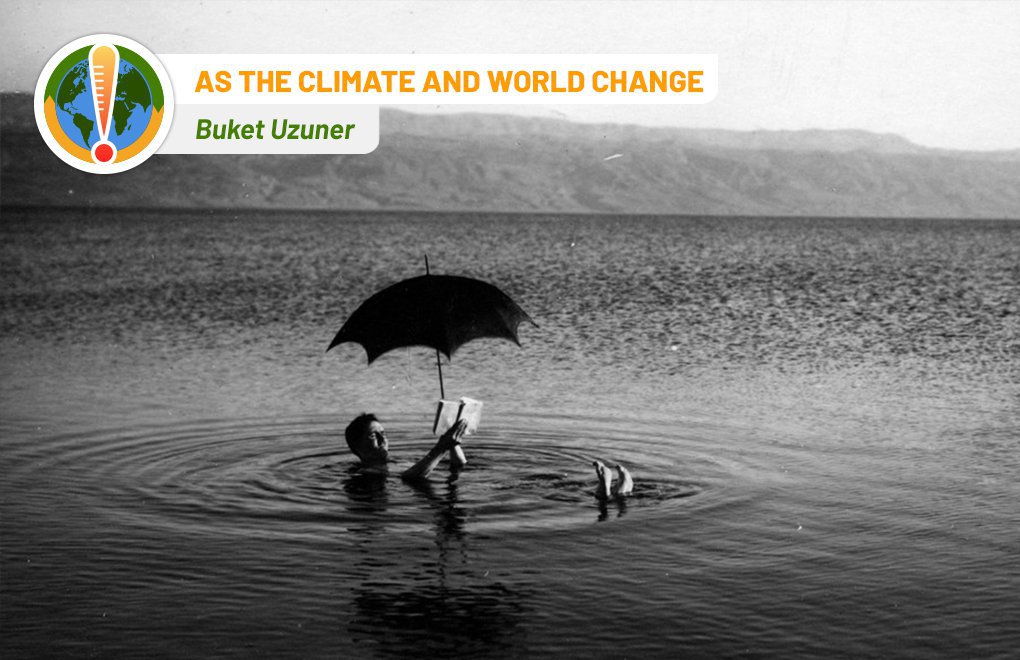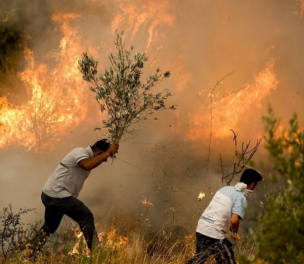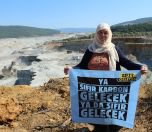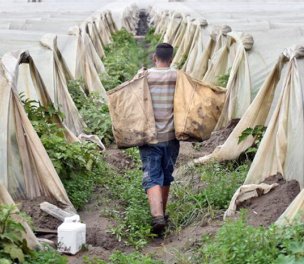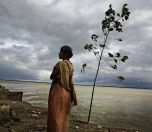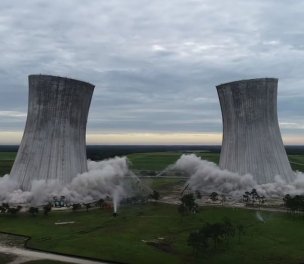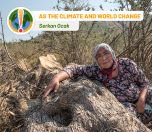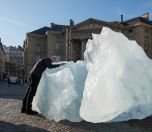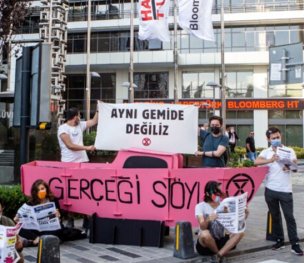Click to read the article in Turkish / Kurdish
"Attention! Dear Humanity, fasten your belts! In order to survive, you urgently need to complete the transition to a 'carbon-free economy'! It is the last call to you!"
A pilot making such an announcement during air travel would only cause laughter. However, hearing the same words from the mouth of a solid character, who drags the adventure-filled novels of a beloved writer whose books are read and loved around the world, can impress the readers.
Because the human being, classified as Homo sapiens in the world of living things, is also a Homo narrans, the only living thing that can tell a story. For this reason, human learns what is told more easily when it is a story because of having the magical ability to imagine, enter any story, and empathize.
The role of the writer
For the same reason, all the holy books give advice through short stories and parables. So, now is the time to ask the following question: Does the writer have an "ecocritical responsibility" in the climate crisis we live in?
In other words, do writers have a responsibility regarding the climate crisis? According to the famous environmental critic Scott Slovic: yes!*
"In these [climate crisis] days, I think more than ever that literature is more than an intellectual toy created for the amusement of intelligent 'irresponsible' critics who are not interested in what is happening to the world. Literature as a field of study and literature itself is, at its most fundamental level, about human values and behavior," says Scott Slovic.
First nature writer of Turkey
Some thought this a century ago. In 1928, the young Republic of Turkey was sending talented young people to Western universities with scholarships for education.
Among them, a clever young man from Karaman went to the University of Bonn to do his Ph.D. in botany. That young man is Hikmet Birand, who returned to his homeland and contributed to the establishment of the Ankara Science Faculty, opened that field of 'plant sociology' there, and founded the ANK Herbarium.
I think the most important works which made him one of Turkey's first nature writers are his two books: "Anatolian Landscapes" in 1957 and "Conversations with the Hawthorn Tree" in 1972.
As a result of his close friendship with a hawthorn tree in Dikmen, Ankara, Hikmet Birand reminds the reader that if non-human creatures gain personality, they will have more importance and rights than humans in the (ecological) cycle of nature for the continuity of life on this planet. That is why those books are our pre-written climate-fiction works, our cultural treasure.
Of course, that is not all. The significant writers of our literature-starting from 1945s- wrote pieces that show nature in the form of sea, stream, flood, mountain, field, farm, soil, air, sky, rain, and drought.
Among the things written in the 20th century, the first ones that come to my mind are: "Aganta! Burina! Burinata!" by Halikarnas Balıkçısı (1945), stories of Sait Faik, "Sea Kustule" (1978) and "The Birds Have Also Gone" (1978) by Yaşar Kemal, "Dry Summer" (1960) by Necati Cumali, "Turtles" (1980) by Fakir Baykurt, "Berji Kristin: Tales from the Garbage Hills" (1984) by Latife Tekin, and my "Two Green Otters" (1991).
Those who left their mark on the world
When we look at the pioneering nature writers and naturalists who left their mark in World Literature, philosophers also appear. Writers who tell about plants and animals that seem silent but in fact speak and communicate with each other. Instead of questioning and speaking on behalf of other people as literary writers usually do. Written narratives of storytellers who remember that human is not the master of nature, but only a part of it, and realize this fact.
Among the few pioneering writers that immediately come to mind for the enthusiasts, there are Henry David Thoreau, who is known for his famous work "Walden" and the political concept of "civil disobedience"; John Muir; Aldo Leopold, father of "Earth Ethics"; Henry Beston; Rachel Carson, writer of "Silent Spring" and mother of the modern environmental movement; Edvard Abbe; Ursula Le Guin and Margaret Atwood, who are Mother Nature herself; and biologist-author Barbara Kingsolver with her recent novels.
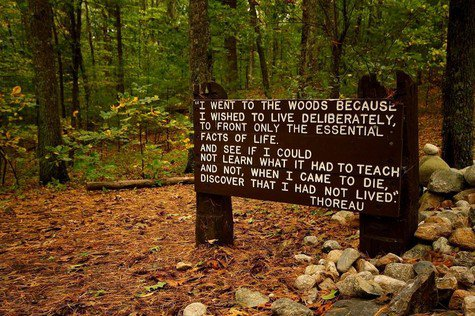
The ones who named constellations
Long before all these valuable local and foreign writers, thinkers, and scientists- whom we commemorate and cannot find a place to commemorate- there were our grandmothers and grandfathers who told us verbally or wrote to the tablets the thousands of years in which humanity accepted itself as a part of the nature and lived in harmony.
In the pre-monotheistic era, it is perfectly possible to think that the first environmentalists, the first climate editors, were actually our Pagan or Shamanic ancestors who told epics and myths—probably by the fire. In fact, they were the ones " who first invented and then named the constellations " **
In the years before the monotheistic religions, when humanity worshiped nature as Pagan or Shaman, it was sin, shame, and forbidden according to these beliefs to consume any part of nature more than the need.
Most importantly, Pagan or Shamans knew that every living thing has a soul and life just like human beings, cutting or burning a tree, cutting or hitting an animal hurt and inflicts pain, and they were not greedy as they are now.
Who is primitive?
We learn with admiration that the Indians (Native Americans) and Siberian Shamans respect the land by tiptoeing over cultivated land as if walking on the belly of a pregnant woman. They still are.
Humanity, which called those eras when the economy was not dependent on carbon, as primitive, now considers itself modern and civilized while cutting, mowing, burning, drilling, digging, burying, and torturing every non-human living thing like "inanimate goods." Today, one of the most vital issues that climate-fiction literature should remind us again is what civilization actually is.
Accused of being a post-modernist
When my first novel, "Two Green Otters: Mothers, Fathers, Lovers And All The Others" which took its color from the "Turkish Green Party" at that time, was published in 1991, malicious and sloppy articles were published that accused a few young writers- including myself-, for felling into the "post-modern" trend that dominated world literature at the time.
However, this allegorical novel was one of the works in which the Green Party and its philosophy, one of the leading representatives of the green movement in our country in the 1980s, were transferred to our literature through a fictional character. -By the way, the current Green Party is not allowed to be officially established for some reason! - Moreover, I came from a numerical (science)-based education, I did not know what post-modernism was in those days exactly.
I wrote a novel in which I tried to make the issues of environmental pollution and the relationship of environmental problems with health, which were not taken very seriously, except for the academic field focused on ecology in those years, visible in the literature. The fact that it was post-modern was a situation related to the age in which the author lived. It was not a planned and programmed project.
Twenty years later
Twenty years after this novel, I started to write a series of novels that take place in four different regions of Anatolian geography. The main issue of these books is the great betrayal of humanity, which is driven by excessive consumption and greed for power, to the nature that they once adored for this cause.
It was also not a planned and programmed project that the "Nature Quartet", which I started in 2008 and will publish the last one this year (2021), coincides with the years when the world was changed very negatively by the consumption activities carried out by human beings, and therefore the era we live in was called the Anthropocene.
During these years, the "Nature Quartet" novels: Water, Earth, Air, and Fire were named "climate fiction". These novels were warmly welcomed by especially female academics who have worked in the fields of "land ethics" and "ecocriticism" for years. Thanks to them, I found myself in a field called ecocriticism and/or climate-fiction in the West. Again, the influence of the age on the writer is related to the writer's interest in nature and ecology.
A call to humanity
I would like to end my words with the important warning of the pharmacist, wise, and herbalist, Shaman Umay Nine, who is a novel character:
Womankind, mankind! You are not the master of nature; you are just a part of it. Know your limits and the value of nature. Continue your struggle to convince the politicians and wealthy businesspeople of where you live now to a carbon-free economy and to protect your tree, water, air, and soil! This struggle is now a matter of existence for us!" (BU/EÜ/VK)
* Scott Slovic, Going Away to Think
** John Berger, Ways of Seeing
"As The Climate and World Change" article series*
Our life becomes history while we live! - Ömer Madra
1 / A country outside of the global climate policy: Turkey - Ebru Voyvoda
2 / Climate change, securitarian policies and ghosts - Özdeş Özbay
3 / Turkey's energy policy: Indigenous at home, Blue Homeland in the world - Emre İşeri
4 / The impact of climate crisis and fossil fuels on child health - Çiğdem Çağlayan & Funda Gacal
5 / We will see beautiful days, coal-free and sunny days - Elif Ünal
6 / Either capitalism or the future - Tuna Emren
7 / The three pillars of climate journalism: Science, politics, and social justice - Ece Baykal Fide
8 / Bringing science, struggle, and art together - Yasemin Ülgen
9 / Clean energy or betrayal? - Serkan Ocak
10 / It is time to say stop economic growth - Fikret Adaman & Gökçe Yeniev
11 / When climate refugees knock on our door - Mehmet Mücteba Göktaş
13 / Climate crisis affects women, women affect climate struggle - Merve Özçelik
14 / Climate fiction in literature- Buket Uzuner
15/ Dr. Faustus and children in the age of fire- Ömer Madra
* This series of articles is published with the financial support of Oslo Metropolitan University (OsloMet) Journalism & Media International Center.





